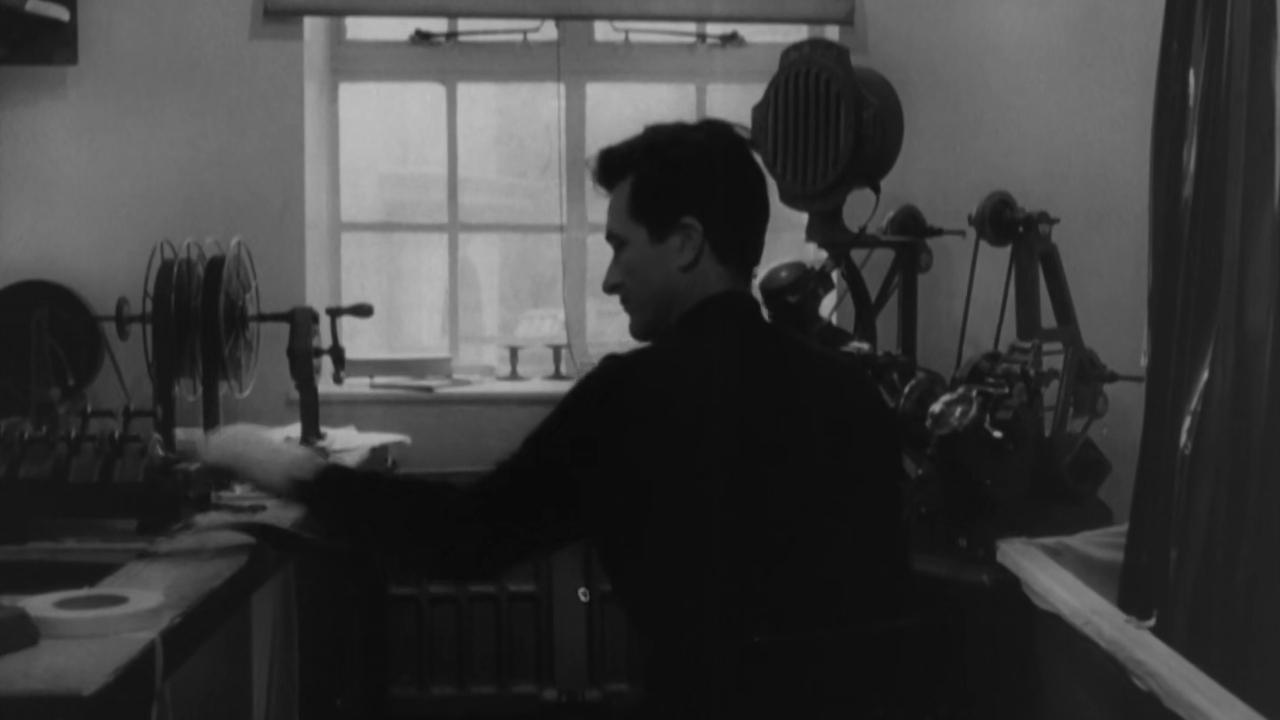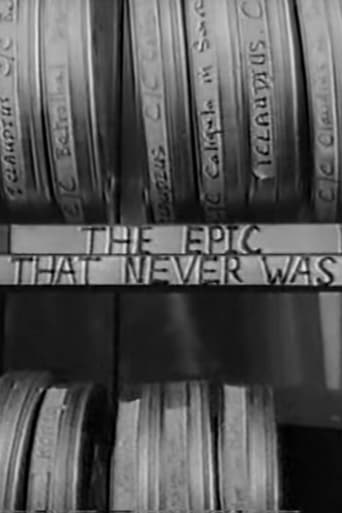



Surprisingly incoherent and boring
In truth, there is barely enough story here to make a film.
View MoreI have absolutely never seen anything like this movie before. You have to see this movie.
View MoreI enjoyed watching this film and would recommend other to give it a try , (as I am) but this movie, although enjoyable to watch due to the better than average acting fails to add anything new to its storyline that is all too familiar to these types of movies.
View More"Clash of the Titans" has two things in common with "I, Claudius": two actresses who played the role of Roman empress Livia. Sian Phillips looked like a young Livia from the BBC production of Robert Graves' novel, playing a Greek queen, while Flora Robson from the unfortunate, uncompleted version had a cameo as a soft-spoken witch. Corruption in the courts of the ancient world were common place no matter what part of the world they were from, it was all the same. Poison was queen, figs could be dangerous when ripe, and fifteen year old girls could be insatiable nymphomaniacs. Such is the ancient world. Such was the renaissance world, and such is the modern world. The Alexander Korda production directed by Joseph von Sternberg never made it to completion, and this fabulous documentary explains why. What was filmed is presented, and four of the major characters are seen here: Charles Laughton's Claudius, Emlyn Williams' Caligula, Flora Robson's Livia and Merle Oberon's Messalina. So where are Tiberius, Antonia, Serjanus and Nero (among others)? Unseen here, either cut out of the final script or not yet cast or filmed most likely. What is here is a profile of British filmmaking, often overshadowed by Hollywood. Laughton's inability to find his character (although he had already played Claudius's adopted son/great nephew Nero), other principal casting, and ultimately Oberon's accident. What remains gives a glimpse into the four characters who made the later T.V. mini-series. Laughton, Williams and Robson are letter perfect in their parts, but Oberon is obviously wrong for the role of a teenaged girl. Dirk Bogarde adds class as the narrator with the surviving actors determined to share their experiences. This is a must, especially if you have just seen the T.V. production.
View MoreThis is one of the most famous documentaries about one of the most legendary aborted projects in film history. The reasons for the latter were two-fold: definitively by way of a car accident in which leading lady Merle Oberon was injured but, firstly, due to star Charles Laughton's difficulty in "finding the man". There is some heart-breaking evidence here of out-takes in which he flubs his lines and demands pardon of his colleagues: in hindsight, having played so many historical characters – including another Roman Emperor, Nero, in Cecil B. De Mille's THE SIGN OF THE CROSS [1932] – and figures of authority throughout the decade (constituting some of the greatest performances on record), one can hardly fault him for failing to strike the necessary balance at first...since he later reportedly drew inspiration from then-recent British events i.e. the abdication of King Edward VIII! With respect to Claudius' physical liabilities, too, Laughton would be vindicated a hundred times over in a couple of years' time with his magnificently poignant Quasimodo in the definitive screen rendition of THE HUNCHBACK OF NOTRE DAME.Anyway, luckily for us, this documentary presents all the surviving footage (which is quite brilliant and, frankly, ahead of its time – making the loss all the more regrettable). The film was intended as producer Alexander Korda's ultimate achievement, for which he even imported one of Hollywood's most idiosyncratic directors – Josef von Sternberg. Unfortunately, at this juncture, the latter is played up as the villain of the piece (perhaps because his arrogance is well-documented) – being taken to task especially when he blames the cancellation of the film on actors' 'tantrums'. Oberon herself does not mention this fact, but seems to accept the project's dissolution as a "godsend". However, another principal actor, Emlyn Williams (who, by the way, makes for a marvelously wily Caligula) ridicules his non-existent aristocratic pretensions...while costume designer John Armstrong berates Sternberg over his deliberate disregard for authenticity! I do feel that double standards were applied in this case – as many a star's foibles have been tolerated over the years but a director, apparently, cannot avail of that luxury (especially when vast sums of money are involved)! The documentary (occasionally accompanied by the powerful strains of Richard Strauss' "Thus Spake Zarathustra" a year before it was to be immortalized thanks to Stanley Kubrick's 2001: A SPACE ODYSSEY!) is hosted by Dirk Bogarde who, interestingly enough, narrates of how he had gone on the set as a curious teen. Also on hand to recount the debacle are actress Dame Flora Robson (playing much older than her age as Claudius' mother), the director's script-girl (who, at least, praises Sternberg for his editorial sense), Robert Graves – the author of the two novels on which the script were based, but whose own adaptation had been rejected! – and, of course, Sternberg himself who believes the results would have been great but, in retrospect, having already made his mark on the cinema, his career thereafter would presumably not have been much different (that said, it did go kind of downhill from there – with the 1940s being especially slack for him – though it took another 16 years to fully peter out!). For the record, Korda, Laughton and supporting actor Robert Newton had all passed on by the time this documentary came to be made.Eventually, the novels would be turned into a massive but celebrated TV series in 1976 with Derek Jacobi as Claudius and John Hurt as Caligula. I own it on 2 DVDs, but the 11-hour length was daunting and I could not possibly fit it in my current Sternberg schedule (as was the case with THE ADVENTURES OF ROBINSON CRUSOE [1964] during the Luis Bunuel retrospective). Maybe next month will be different, seeing how the usually epic-centered Easter period is just around the corner...
View MoreHaving recently picked up the well known BBC miniseries of I, Claudius I was surprised to see this little documentary as a special feature. To describe it as a DVD special feature is an understatement of the highest order. The Epic That Never was is an amazing look at the first film attempt to make I, Claudius that reveals a lost film in all its splendor.Actor Dirk Bogarde hosts this collection of surviving footage, retrospective interviews and footage of the studio where it was filmed as it looked in the mid-1960's. The interviews reveal the thoughts and remembrances of several cast and crew members looking nearly three decades back on the doomed production with some interesting thoughts. All the while Bogarde gives linking narration and commentary on the surviving footage. Yet while all this is interesting it isn't the highlight of the documentary.The highlight of this documentary is of course the footage itself. The footage reveals a somewhat lavish production that could rival any of the epic films of the late 1930's. In particular is the performance of Charles Laughton in the title role especially in his speech in front of the Roman senate. If there is any shame to be found in the fact that the 1937 version of I, Claudius it is that most of the world never got the chance to see Laughton's performance and what influence it might have had.The Epic That Never Was is a fine documentary. With its interviews and narration it is better then many of the similar documentaries found on many dvds today. More importantly the footage reveals what could possibly have been a classic. For anyone who enjoyed the BBC miniseries or is curious to see how that tale might have looked go no further.
View MoreThis is a good, entertaining and revealing document of the abandonment in mid-production of a film spectacle, begun in England in the mid-1930s, but which happily still saw the light of day thanks to the preservation of several reels of assembled footage in mint condition. Those involved in the production still alive by 1964 are interviewed with their slightly divergent points of view, and they are a colorful lot: Von Sternberg, Oberon, Emlyn Williams, Flora Robson. Dirk Bogarde is impeccable as the host-narrator who observes of Charles Laughton, immediately following a stunning monologue, that he was "kissed with genius." And so he was.
View More